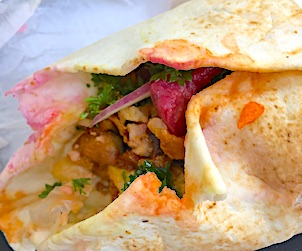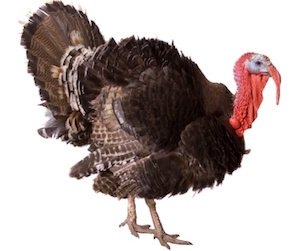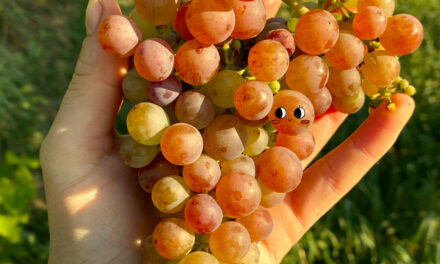Challop (noun) – plural : challops
Pronounced “chah-lop’
1: Abbreviation for challenging opinion.
2: An irregularly published column on website Good Food Revolution.
In Part One of Hybrid Theory, I introduced a subject that I vehemently champion and would love to see more access to in the future of wine: hybrid grapes. As this is a vast topic, I’ve dedicated a three-part article series where we will dive into how this could affect postmodern winemaking in Ontario as well as the environment around us.
I truly believe that Canada should dedicate itself to its own style of winemaking. Many hybrids are of North American grapevine species (such as Vitis riparia and labrusca) and require a less-forced approach when it comes to their growth. We might know the classic wine pairing quote ‘what grows together, goes together’, and I believe that taking that to a different plane to suggest what is happy to grow here might actually be best for us.
Often, when growing grapes and making wine in Ontario, we’ve pushed our climate’s boundaries. We grow Cabernet Sauvignon in Ontario and use a lot of resources to try and help it survive (it rarely thrives in this part of Canada due to our colder climate). Disease pressure and temperature swings make for a difficult ripening time.
I’m too classy to name names (just ask me on the streets), but many large-scale winemakers will use additives such as grape skin extracts, oak staves, and even adding plain old sugar (chaptalization) to cast a shadow on what Cabernet Sauvignon can be. It’s unfortunate; I have a thorn in my side, as everyone can tell. Additives, heavy filtering and fining, and stability in wine are the modern formats that took over in the 20th century. This to me can create lovely, but dead, wine.
Why force the wine to act against its terroir and climate? Nobody is angry that we don’t have bananas growing in Northern Ontario (if you are the begrudged person, please DM me because you’re hilarious). Why are we pressuring ourselves to grow grapes that struggle so much to survive here?
It encourages more spraying (pesticides, anti-fungal, anti-ladybug) and more additives just to create a palpable wine reminiscent of European styles. Why aren’t we using our unique climates and our access to hybrids that thrive here to create something both environmentally and creatively responsible? Simple: sales.
Canadians are used to a certain style and palette of wine. In Ontario, we have largely had our choices dictated to us via the Liquor Control Board of Ontario’s (LCBO) purchases. Despite only representing one province, the LCBO is one of the largest alcohol purchasers on the planet, alongside Costco, Tesco, and Walmart.
I largely blame the LCBO for making most of the Ontario population believe all Riesling is sweet because they were buying so much off-dry Riesling over the past couple decades (personal vendetta). Whatever they push, the population pulls. Each province has its own provincial alcohol buyer (SAQ in Quebec, BCLiquors in BC, etc.), and each dictates what goes on the shelf and to the masses.
They have bizarrely large case minimums (how many cases of a singular style of wine that a local winery must produce in order to be purchased by the LCBO) in place for Ontario wineries and highly tax all alcohol products (roughly 65% of the cost with every Ontario wine is taxes and levies due to the LCBO) to the point that they’ve been taxed three times at the moment they hit the dining room table in a restaurant. Wineries are punished with a 6.1% tax charged to all wines made in Ontario, which bafflingly does not apply to imported wine. There is a metric ton of work to do for the growth of our own viniculture industry.
This isolates Ontario wineries from a very large buying platform that much of the general public relies on when discovering wine in Ontario. I bring the LCBO (and other distributors) up because they are part of the problem when it comes to supporting smaller local wineries, hybrid-based wines, and moving forward in our industry.
They aren’t alone in their endeavours. Enter the Vintners Quality Alliance (VQA). They are an authority in Ontario winemaking, and they have a panel of experts that decide whether a wine ‘fits a certain category’. They also keep “toilet wine” off the streets, which is great. They keep a standard so that swill does not get released. That being said, the issue isn’t really with bad wine hitting the shelves in Ontario. [In my opinion] they are also stifling modernity.
They only recently recognized the skin-contact wines category as late as 2017, and they still struggle to grow with the experimentation of our celebrated winemakers and their Eurocentric expectations of grape varieties.
What happens when a wine does not suit its category? The VQA rejects it, and without a VQA certification, you may still sell your wine, but the winemaker is taxed in a higher bracket, making it more difficult to distribute and actually profit. That is the issue with many hybrid wines right now; they aren’t fitting a category. In Canada, the LCBO and VQA extinguish opportunities to sell and expand on these wines, and until they fully embrace this movement, it will continue to be impossible to fully shift into a hybrid wine movement here in Ontario.
I’m excited to see the future of Ontario wine. I sound bitter and frustrated because I’d like to see us take advantage of our unique opportunity with hybrid grapes, which I believe is currently being muted.
Hybrid wines are an exciting array of palates for anyone who’s used to the conventional wine platform. Purely on a sales pitch: they’re ‘new’ (not new, but new being reintroduced to the Ontario market), they’re exciting, and they’re good for the environment. They’re easier on Ontario winemakers as far as the growing process, and they’re wines evolved specifically for our terroir.
The Ontario climate struggles daily; VQA and LCBO should be making an active effort to encourage the creation of more environmentally sound grape varieties. It would be inspiring to see an incentive (subsidies or otherwise) for those growing climate-friendly hybrid grapes for the bright future of the Ontario wine scene. The best way to support these endeavours is by buying from Ontario wineries directly and supporting hybrid wines when you see them!
For more ways on how to buy local and support hybrid wines check out: The Ontario Guide to Buying Wine For and From Your Pals
More links for those curious of some local wine-geek dialogue:
Province approves hybrid grape for VQA Ontario
(glad to see it)
With climate change threatening Canadian vineyards, is genetically engineered wine on the horizon?
(not keen on the above – on record)
Ontario winemakers still fighting for respect at the LCBO
SDG supports elimination of LCBO markups on non-VQA wine
Only the LCBO could make Ontario’s wine lovers and Wine-makers both unhappy
‘It feels like theft’: Ontario wineries frustrated by government obstacles
Nervous time for Ontario wine industry as Ford prepares to change the game plan







